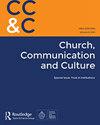电影与人的尊严:教皇方济各的电影提议及其与电影人格主义的关系
Q1 Arts and Humanities
引用次数: 0
摘要
摘要本文认为,教皇方济各在将电影作为一个反思的主题,即作为一个展示思想的合适媒体的方法中提出的建议,是否可以与对最好的电影的解读有关,这种电影突出了人的尊严,尤其是最脆弱和最无助的人,从而帮助我们培养对真正人性的凝视。为了回答这个问题,我们将分析好莱坞“电影个人化”作为一种电影哲学的意义及其与电影研究的关系。据此,法国个人化电影研究的电影现象学将与好莱坞的电影个人化相关联,以表明尽管在某些方面存在差异,但在捍卫电影作为一种服务于个人尊严的艺术方面,存在着深刻的趋同因素。这一点在意大利新现实主义和好莱坞电影个人化之间的相互关系中尤为明显,证明了新现实主义是一些意大利作家的个人化形式。同时,我们要记住,电影个人化的表现形式是当下的。最后,我们提出了坚实的论据,以在教皇方济各的电影建议和电影个人化之间建立一种方法。本文章由计算机程序翻译,如有差异,请以英文原文为准。
Cinema and human dignity: Pope Francis’s cinematic proposal and its relationship with filmic personalism
Abstract This article considers whether the Pope Francis’s proposal in his approach to cinema as a subject for reflection, i.e., as a suitable media for presenting ideas, can be related to an interpretation of the best cinema that highlights the dignity of the person, particularly the most fragile and defenceless, and which thereby helps us train our gaze on true humanity. To answer this question, the meaning of Hollywood’s ‘filmic personalism’ as a cinematic philosophy and its relationship with film studies will be analysed. Following from this, the cinematographic phenomenology of film studies of French personalism will be related to Hollywood’s film personalism to show that there are elements of deep convergence around defending cinema as an art that serves personal dignity, despite certain aspects of difference. This will be particularly visible in the interrelationship that can be traced between Italian neorealism and Hollywood filmic personalism, proving that neorealism was a form of personalism for some Italian writers. At the same time, we keep in mind that there are current expressions of filmic personalism. We conclude with solid arguments that are given to establish an approach between the cinematic proposal of Pope Francis and filmic personalism.
求助全文
通过发布文献求助,成功后即可免费获取论文全文。
去求助
来源期刊

Church, Communication and Culture
Arts and Humanities-Religious Studies
CiteScore
1.30
自引率
0.00%
发文量
14
审稿时长
21 weeks
 求助内容:
求助内容: 应助结果提醒方式:
应助结果提醒方式:


